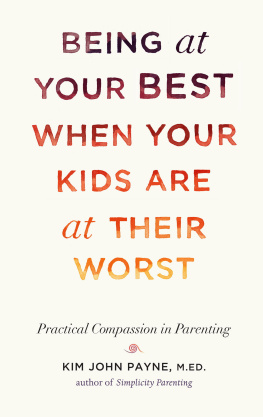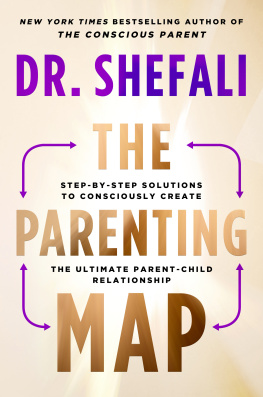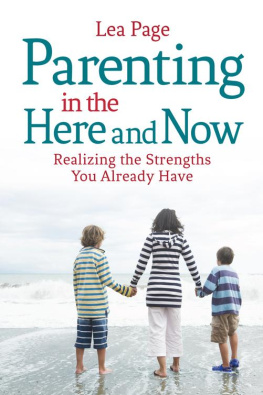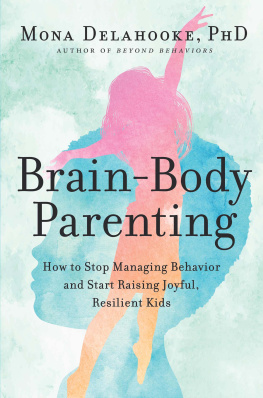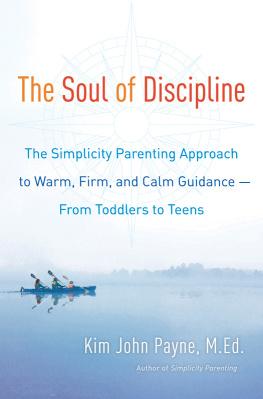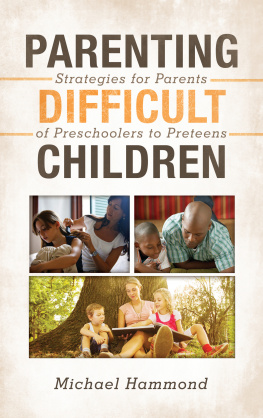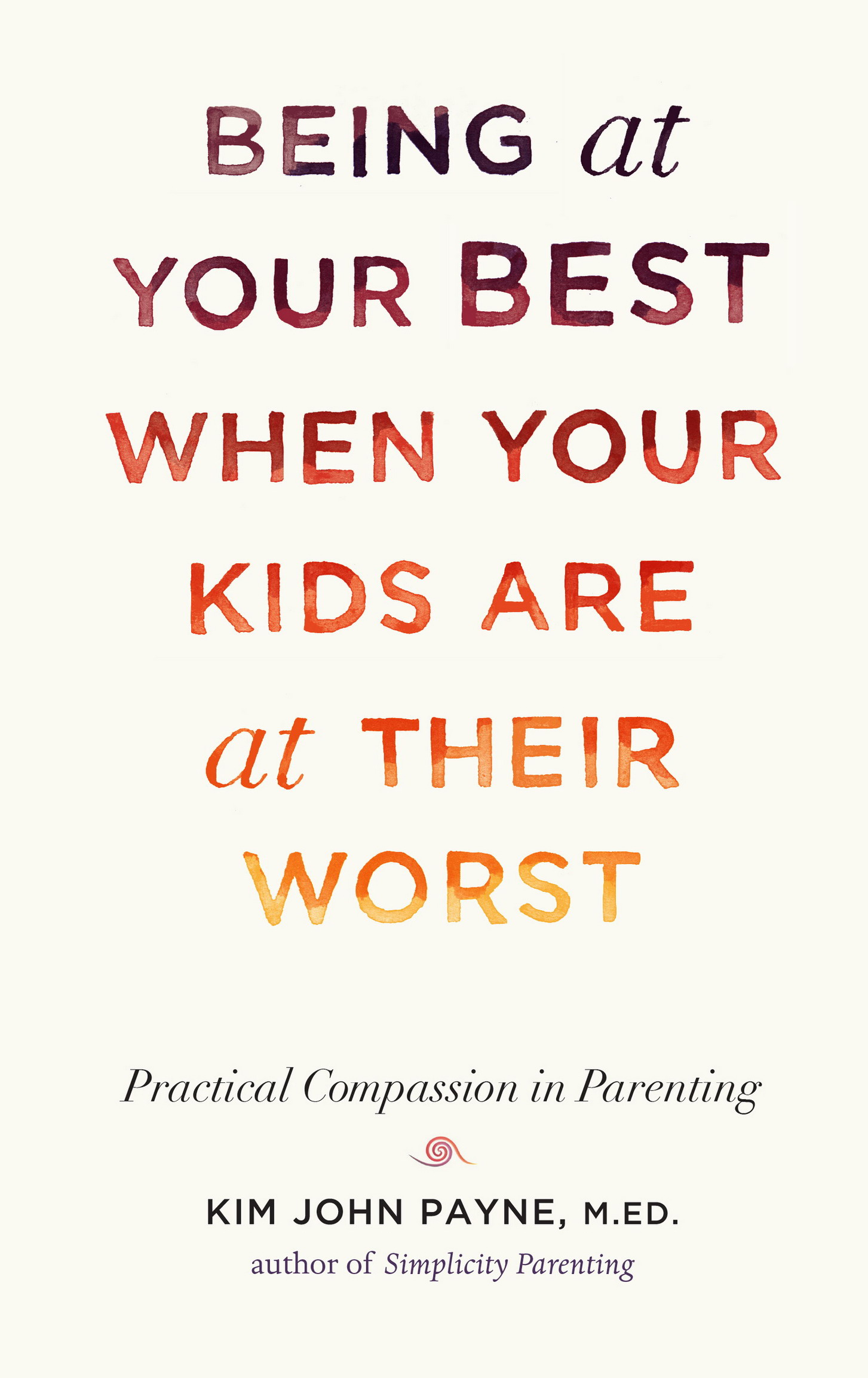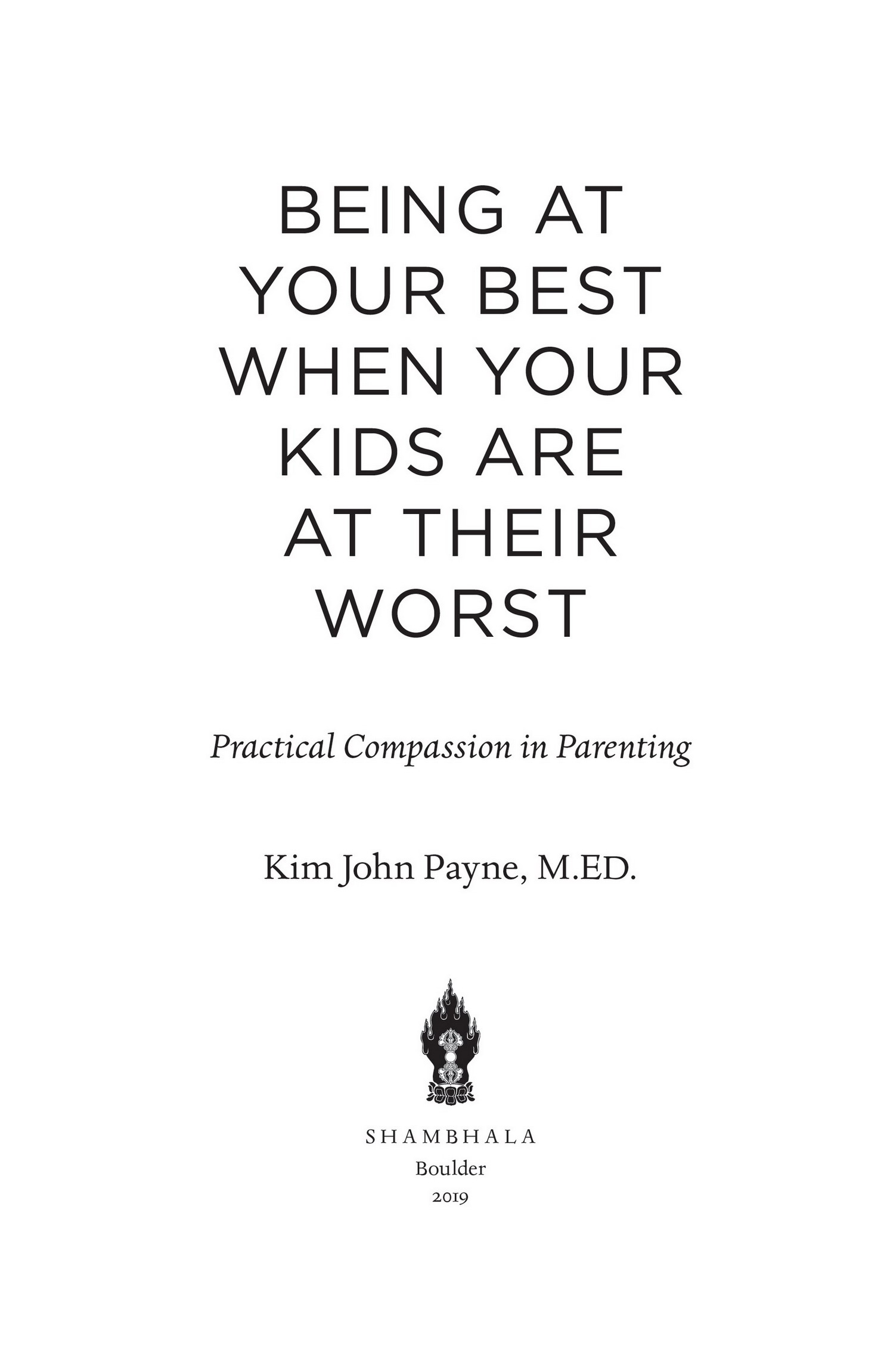Shambhala Publications, Inc.
All rights reserved. No part of this book may be reproduced in any form or by any means, electronic or mechanical, including photocopying, recording, or by any information storage and retrieval system, without permission in writing from the publisher.
Ebook design adapted from printed book design by Greta D. Sibley
Library of Congress Cataloging-in-Publication Data Names: Payne, Kim John, author.
Title: Being at your best when your kids are at their worst: practical compassion in parenting / Kim John Payne.
Description: First Edition. | Boulder: Shambhala, 2019.
Subjects: LCSH: Parenting. | Child rearing. | Parent and child. | BISAC: FAMILY & RELATIONSHIPS / Parenting / General. | PSYCHOLOGY / Developmental / Child.
Introduction
No parent plans to get angryit just happens. Afterward we usually feel awful about what took place. But what is it like to live in a home where a parents frustration regularly boils over? Here is a story recounted by an adult looking back at their childhood and the knowledge they gained from the unpredictable environment they navigated. Even though the circumstances described are harsh, it may help us to see through the eyes of a child. Youll hear the story of this ten-year-old as they try to make sense of their own parent struggling with emotional self-regulation.
A Childs View
My mother suffered with some health issues that understandably kept her from being able to keep up with the demands of life. She moved with difficulty, frustration, and pain. I can barely imagine, in retrospect, how she struggled to raise us kids, as well as be an attentive wife and the main caregiver for her own elderly parents.
She had high standards for herself, her children, and every other aspect of her life. She could be quite creative when figuring out how to keep up her homemaking ideals in spite of her debilitating condition. I remember coming home one day to see her vacuuming the floor with the hose taped to her walker. Good idea, but it meant she had to walk backward and forward dozens of times throughout the entire house to get every speck off the carpet. It must have been painful and exasperating, but she got the job done.
When we finally convinced her, decades later, to allow us to hire a professional cleaner, it only made things worse. She insisted on cleaning every last inch of the home before she could let the woman through the door. It wasnt that she was obsessive. This was just how she kept up appearances. Many women of her generation shared this trait.
Nevertheless, there was a dark side to her struggles. She often became enraged and directed her anger toward me. I have no doubt the contrary child I probably was, exasperated her and often tested her patience as she met the many responsibilities of her daily work. But some of my most vivid childhood memories involve being strapped with a thick leather belt. This was not an unusual punishment for kids in those days. When this happened I would float somewhat out of my body, see her contorted face, and even look with wonder and an almost eerie calm at the whole scene. But the hurtful sting of her words when she told me what a horrible child I was, how my future was going to be hopeless, cut more deeply than the bite of the strap.
This treatment finally ended when I was ten years old and able to stand up for myself. One day I triggered her (by doing something I cant even remember, but it must have been provocative), and as she reached for the belt, I looked her straight in the eye and said, If you hit me again, I will hit you back just as hard. After that you will never see me again. And, in my own ten-year-old imagination, I meant it. Id made elaborate plans to move in with a kind relative and had money for a bus ticket and a packed bag hidden and at the ready. Of course, I didnt hit herthank goodnessbut my threat shocked her, and she cried. Weirdly, I felt bad for upsetting her. The hitting stopped after that, and the shouting and shaming lessened, but a gulf between us opened up.
I have often wondered whether my mother suffered from rage that once released, could not be controlled. I have heard a definition of addiction as being an increasing and compulsive tendency to avoid, pain, boredom, silence, inner development, and moral responsibility by displacing it with outer stimulation.
Rage can most certainly be taking it out on someone elsea clear form of outer stimulation. In my mothers case, her verbal and physical aggression may have helped her avoid facing that something was not right in her life. A person who shouts loudly enough, blames and shames others long enough, is probably trying to avoid having to face his or her own demons.
After these outbursts took place, little was said. It was as if nothing had occurred. It would make any child wonder, Did that really happen? Like so many other children in these kinds of situations, it never occurred to me to tell anybody about what was going on. And as odd as it may sound, I would have settled for even a small signal that she was sorry for her outbursts. A brief and gentle touch afterward that suggested remorse and a wish to reconnect would have meant everything. It never came. And as a result, our relationship floundered, which lasted into my adult years.
When I became a parent I was forced to confront my own emotions. It surprised me how little was needed to tip frustration over into anger. And I most certainly did not want to dwell there. I began to grasp my mothers parenting struggles, and slowly, over time, I developed the ability to understand what prompted her hurtful words and actions. I wish those years of harshness had never happened. But the silver lining was that I experienced what its like to be in the presence of an adult who could not control her emotions, as she would have liked to. Most importantly, it planted in my heart the determination to do whatever I could to not go down that angry road. It also helped me realize the absolute necessity of making relational repairs when things go wrong and the cost when this does not happen.
I have heard it said, You cant give what you did not get. In other words, if my parent was not there for me, I cannot be there for my kids. But I dont see it that way. When our babies are born and first placed in our arms, we are not thinking about our past and what we did not get. The unspoken challenge right in that moment is to begin to find capacities in ourselves that we probably never knew we had to stay present and to keep showing up to love this little, vulnerable child even when he or she pushes us and we have to reach deep inside to find caring and protecting capacities we never knew we possessed.

